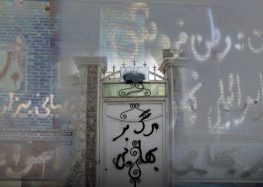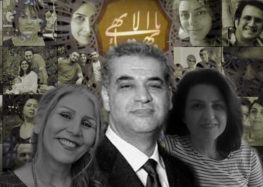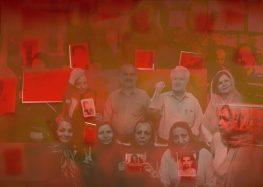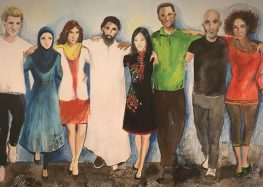Three Baha’is Barred From University in Iran Sentenced to Five Years in Prison
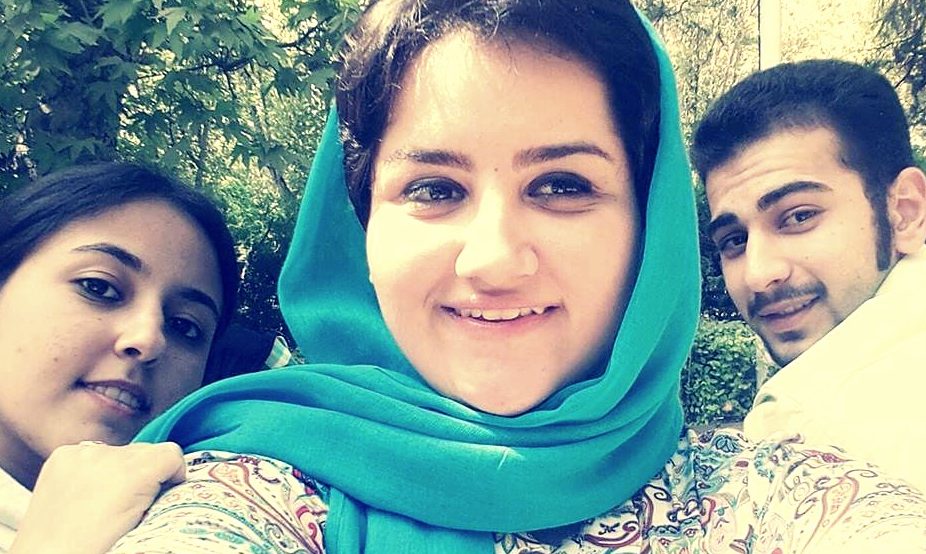 Three young Iranians who complained to state officials after being denied university education for being followers of the Baha’i faith have been sentenced to five years in prison each, the Center for Human Rights in Iran (CHRI) has learned.
Three young Iranians who complained to state officials after being denied university education for being followers of the Baha’i faith have been sentenced to five years in prison each, the Center for Human Rights in Iran (CHRI) has learned.
Lawyers representing Rouhieh Safajoo (21), Sarmad Shadabi (22), and Tara Houshmand (21) were informed of the prison terms issued by Judge Mohammad Moghisseh of Branch 28 of the Revolutionary Court in Tehran on November 4, 2017.
“It’s totally unfair,” Safajoo’s sister, Maryam, told CHRI on November 8. “They have been given the maximum punishment without any consideration of their age or the fact that they did not have prior criminal records.”
The three were convicted of the charges of “membership in the anti-state Baha’i cult” and “publishing falsehoods.”
The Baha’i community is one of the most severely persecuted religious minorities in Iran. The faith is not recognized in the Islamic Republic’s Constitution and its members face harsh discrimination in all walks of life as well as prosecution for the public display of their faith.
After receiving high marks in Iran’s competitive university entrance exams in 2013, the Baha’is students were barred from enrolling in university. They wrote letters to the president, Science Ministry, Parliament and the judiciary to complain about the violation of their human rights.
“I ask you and other officials to treat me just as you would other ‘human beings’ and ‘Iranians,’ in accordance with human rights and the Iranian Constitution,” wrote Rouhieh Safajoo in a Facebook post addressing Mohammad Javad Larijani, the head of the Judiciary’s Human Rights Council, on August 7, 2014.
“…[I]f my letter hasn’t reached you and you haven’t heard my voice, then you definitely haven’t heard the voices of any Baha’is—because you told international forums that Baha’is are not mistreated,” she wrote.
Baha’i students have long been denied higher education in the Islamic Republic. Previously, they were prevented from obtaining their exam results—required for enrollment—by an online message citing “incomplete cases.” However, in an August 2014 Facebook post, Safajoo described a new form of rejection for Bahai’s.
After logging in to view her exam results, an online message told her to write a letter or go to the National Education Evaluation Organization’s Queries Office in the city of Karaj for her results.
She soon discovered that her non-Baha’i friends were able to retrieve their results online, but that all Baha’is were being told to contact an evaluation organization, and that they would only be rejected upon arriving at the address.
“If they had told me I had an ‘incomplete case,’ I wouldn’t have been upset because I was prepared for it,” she wrote at the time. “But it bothers me that they found a new way to reject us.”
In September 2014, Safajoo tried to share her grievances with Alireza Mahjoub, a reformist member of Parliament from Tehran, but “he was rude and insulting and threw her out of his office,” her sister told CHRI.
“The court faulted Rouhieh for visiting tourist sites in India when she came to see me, including the Baha’i temple in New Delhi,” said Maryam Safajoo. “Another one of the accused was also condemned for posting a message from the Baha’i Universal House of Justice on his personal Facebook page.”
“No other court would prosecute people for these sort of things,” she said.

